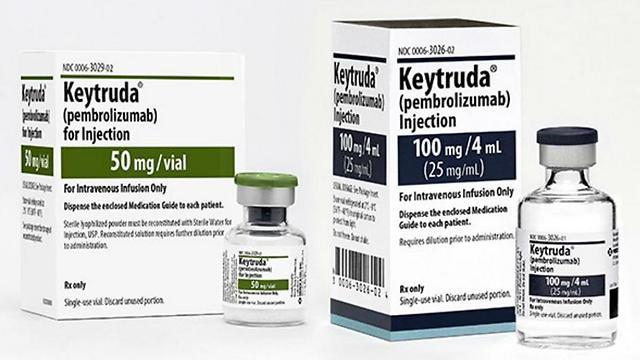Background
A Phase 2 multi-center study was conducted to evaluate the virus, DNX-240, also called Tasadenoturev, in combination with the immunotherapy, Keytruda, in pateints with recurrent glioblastoma.
Methods
Patients with Glioblastoma at first or second recurrence were treated with a single intratumoral injection of DNX-2401 at the time of biopsy, followed by 200 mg Keytruda infusions every 3 weeks until progression or toxicity.
Results
49 patients were enrolled at first (~80%) or second (~20%) recurrence after prior surgery, radiotherapy and Temozolomide.
Forty-eight of 49 were treated with DNX-2401 and Keytruda.
- Median treatment duration was 7 cycles with one patient remaining on treatment.
- 12% of patients had the tumor shrunken or stopped from growing
- 2 patients had durable complete remission
- 1 patient remains tumor free for more than 12 months after completing the planned 24 months of Keytruda treatment
- Median survival was 12.5 months from the start of the treatment
Side Effects
These were primarily mild to moderate and manageable.
Headache, brain edema and fatigue are the most common events reported as related to the treatment.
Conclusions
DNX-2401 plus Keytruda provides encouraging activity and is safe in patients with recurrent glioblastoma.
A global, randomized, controlled Phase 3 study is planned.
Contact us to find out what is the best treatment for YOU
TRIAL•IN Pharma
Because we, do not give up on life!
Contact us 24/7 –
Call center +44.2082.426.039
About Glioblastoma
Glioblastoma Multiforme, or GBM, is a type of cancer which originates in the brain and made of brain cells known as “gliomas.”
Gliomas are neuron supporting cells, constituting a part of the nervous system.
Glioblastoma tends to develop into a star shaped formation. They are particularly aggressive tumors with the potential to grow fast and spread to other parts of the brain relatively quickly.
Glioblastoma creates its own independent blood supply which feeds it, promoting its growth and even enabling it to invade additional areas of the brain and establish more foci, hence the name “multiforme.”
GBM is a stage 4 cancer and constitutes about 50% of all brain tumors among patients aged 18 and older. Glioblastoma does not metastasize outside the brain.
The existing therapies used for glioblastoma are not curative, and this is a source of the need for innovative and effective treatment strategies in order to fight the disease.
The National Cancer Institute, NCI, highlights the fact that for a certain group of glioblastoma patients, the best treatment option is to join one of the many clinical trials existing worldwide aiming to increase their chances of therapeutic success.
Glioblastoma Multiforme, GBM, Symptoms
With its speedy growth rate, and the fact that the skull is incapable of expanding, internal pressure builds up inside the brain.
The pressure causes an array of symptoms based on the location of the tumor.
Symptoms may include ongoing and permanent headache, seizures, vomiting, confusion or cognitive complications, mood swings or behavioral changes, double or blurred vision, speech difficulties, and more.
Recurrent Glioblastoma
In most cases, despite these treatments, Glioblastoma tends to recur and re-grow. This stage is known as rGBM, recurrent Glioblastoma.
At this point the options for conventional treatments are fewer.
When this occurs, treatments the patient has already received are often repeated since no other options exist among standard protocols.
Treatment Goals
The treatment objectives in Glioblastoma are to slow down and control the tumor’s growth rate and assist the patient in maintaining a good quality of life as much as possible.



















